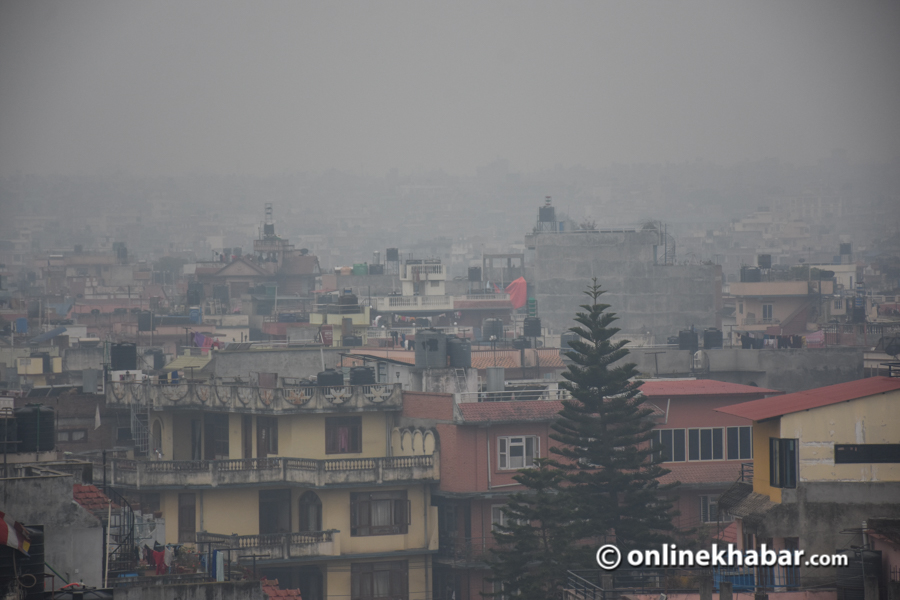
Biratnagar, February 21
A massive financial scandal has been uncovered at Baraha Savings and Credit Cooperative, based in Dharan, Sunsari, where public savings were allegedly misused by the owners of Baraha Group of Companies. The investigation has revealed that Rs 10.73 billion was misappropriated through more than two dozen affiliated companies.
According to documents obtained by OnlineKhabar, the funds collected from the cooperative’s passbook system were directly invested into Baraha Jewellery and other related companies. Baraha Savings and Credit Cooperative, along with Baraha Jewellery Industries Pvt Ltd., was among 28 companies implicated in this financial mismanagement.
Investigations indicate that Baraha Jewellery Industries Pvt Ltd received direct investments exceeding Rs 270 million from the cooperative. Out of this, Rs 158.4 million was acquired in the names of employees, suggesting that the jewelry company used its staff members as proxies to obtain loans from the cooperative.
Employees used as loan proxies
The documents show that Baraha Jewellery took Rs 158.4 million in loans under the names of 26 employees. Furthermore, Baraha Cooperative Chairperson Man Bahadur Bishwokarma provided a loan of Rs 4.5 million to his own son, Sanyog Deyali BK. This amount was later found to have been invested in Baraha Jewellery Industries Pvt Ltd.
On June 15, 2019 (Jestha 32, 2076 BS), Sanyog Deyali BK secured a loan of Rs 4.5 million from the cooperative. That same day, Baraha Jewellery’s authorised representative, Ambar Bahadur Bishwokarma, signed a legal agreement stating that the loan would be utilised by the company.
Similar agreements were signed by 26 employees, all of whom stated in identical language that the loans were taken from the cooperative to invest in Baraha Jewellery. These agreements explicitly mentioned that the principal amount and interest payments would be the responsibility of Baraha Jewellery Industries Pvt. Ltd.
Records indicate that loans ranging from Rs 4.5 million to Rs 10 million were secured in the names of employees. However, police investigations found that the cooperative’s software did not list these loans under employee names. The discovery emerged after employees protested against the fraudulent activities, leading to the alteration of loan records to reflect Baraha Industries Pvt Ltd as the borrower instead.
A police source involved in the investigation stated, “We found that transactions were conducted using Barah Cooperative’s passbooks, but the actual operations took place at the jewelry store. This was a blatant misuse of cooperative funds.”
Legal action against 216 individuals
Following nearly three months of investigation, the police have submitted a report to the District Attorney’s Office. The report recommends legal action against 216 individuals, including 48 executives and loan recipients from the cooperative and affiliated companies.
The report suggests recovering Rs 10.73 billion from those implicated, with a larger share of the amount to be collected from the company’s executives rather than the loan recipients.
A total of 4,147 complaints were filed by affected depositors, involving 4,760 victims. Based on these complaints, the total amount of lost savings demanded for return stands at Rs 5.85 billion. However, police investigations indicate that Baraha Cooperative and its jewelry business had approximately 13,000 depositors in total, suggesting that many victims have not yet filed formal complaints.
A police source explained, “The cooperative itself did not accumulate such a large sum of money. Its liabilities amount to approximately Rs 1.22 billion. The majority of the money was directly transacted through Baraha Jewellery using cooperative passbooks.”
Expanding the investigation beyond Dharan
The scandal is not limited to Dharan alone. The police suspect that Baraha Group, run by the Lamicchane family, has defrauded the public of approximately Rs 14 billion nationwide.
Preliminary findings from the Sunsari Police indicate that financial irregularities in Dharan alone account for Rs 10.73 billion. Investigations are ongoing in Chitwan, Kathmandu, and Kaski, where similar fraudulent activities are suspected.
Indra Lamicchane (Bishwokarma), who migrated from Bhojpur to Dharan in 1995 (2052 BS), founded Baraha Jewellery Enterprises, primarily targeting the families of retired Gurkha soldiers. From the beginning, the company attracted deposits by offering lucrative interest rates. Over time, Baraha established itself as a reputed brand, even adding the tagline “Symbol of Trust” to its name.
Following a regulatory restriction on deposit and loan transactions through jewelry businesses, Baraha Savings and Credit Cooperative was officially established in 2009 (2066 BS). However, rather than functioning as a traditional cooperative, it served as a financial channel for the Baraha Group’s other businesses.
Questionable investments across multiple companies
According to records, significant investments from Baraha Cooperative were directed towards multiple businesses under the Baraha Group umbrella. The funds were distributed as follows:
- Rs 272.8 million to Baraha Jewelry Pvt. Ltd.
- Rs 30.4 million to Baraha Family Kitchen
- Rs 8.79 million to Baraha Department Store
- Rs 48.6 million to Baraha Bhedetar Multipurpose Pvt. Ltd.
- Rs 46.8 million to Baraha Agriculture and Livestock Pvt. Ltd.
- Rs 2.82 million to an additional investment in Baraha Bhedetar Multipurpose Pvt Ltd.
These financial transactions were presented by Chairperson Man Bahadur Bishwokarma to the House of Representatives’ Parliamentary Investigation Special Committee as part of an attempt to justify the group’s activities.
A business empire’s collapse
Baraha Jewellery, established in 1995, expanded rapidly until 2013. However, the company faced a severe financial crisis after its founder, Indra Lamicchane, was found dead by suicide in Hong Kong in 2013 (2069 BS). Following his death, the business began to decline, eventually collapsing entirely after the COVID-19 pandemic.
The Lamicchane family continued to expand its financial empire by establishing multiple businesses, including:
- Baraha Jewellery Pvt. Ltd.
- Baraha Family Kitchen
- Baraha Department Store
- Baraha Bhedetar Multipurpose Pvt. Ltd.
- Baraha Agriculture and Livestock Pvt. Ltd.
- Kripadrisya Digital Production Pvt. Ltd.
Beyond Dharan, the group also operated businesses in other cities, including:
- Indra Baraha Travels & Tours Pvt. Ltd. (Kathmandu)
- Narayan Baraha Jewellery Industries Pvt. Ltd. (Chitwan)
- Gorkha & Baraha Jewellery Industries Pvt. Ltd. (Pokhara)
- Barah Jewellery Industries Pvt. Ltd. (Kathmandu)
- Barah Property Services Pvt. Ltd. (Kathmandu)
- Barah National Investment Pvt. Ltd. (Kathmandu)
- Dreamland Real Estate Pvt. Ltd.
Implications and ongoing investigations
With the scale of financial mismanagement now exposed, law enforcement agencies are intensifying their investigations across multiple districts. The Baraha Cooperative scandal has raised serious concerns about regulatory oversight in Nepal’s cooperative sector, prompting calls for stricter financial monitoring to prevent similar cases in the future.
While authorities continue their legal proceedings, thousands of depositors remain in financial distress, uncertain whether they will recover their savings. The case has become one of Nepal’s largest cooperative frauds, highlighting the urgent need for improved governance and transparency in financial institutions.



















